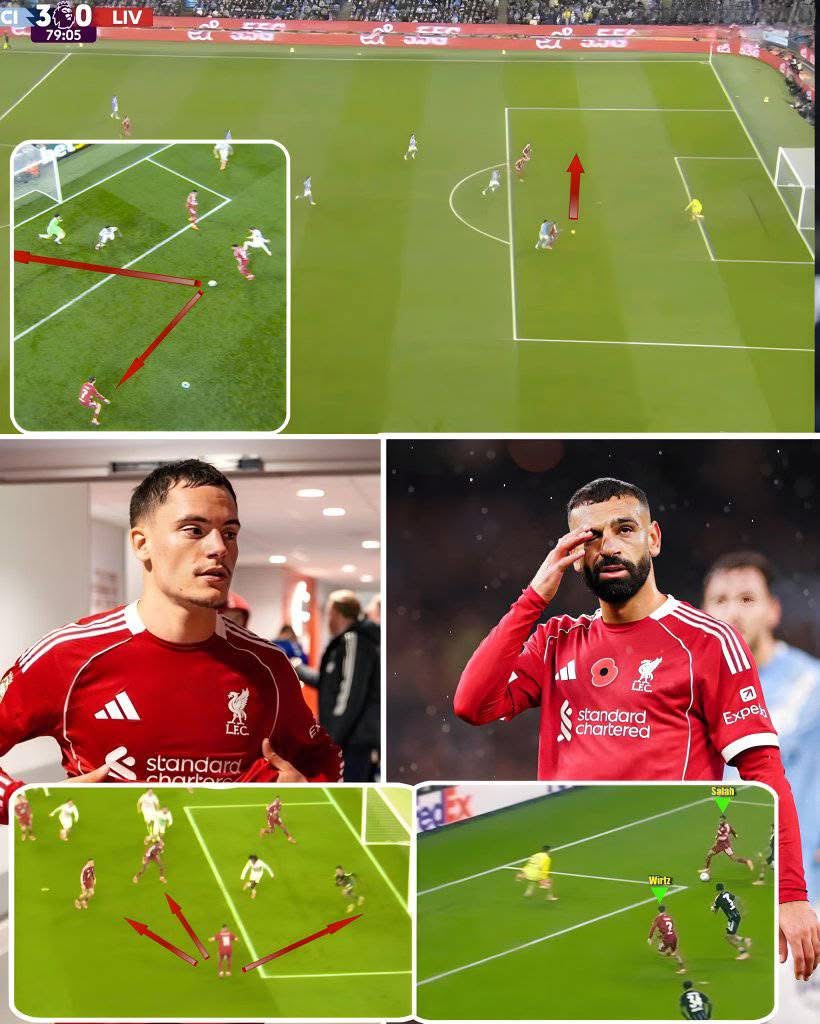Manchester City manager Pep Guardiola has never been shy about speaking his mind, but his latest comments have sent shockwaves across English football. In what many are calling a dramatic intervention, Guardiola has reportedly warned new Manchester United boss Ruben Amorim that unless he gets rid of a certain player, he risks repeating the same mistakes that led to Erik ten Hag’s downfall.
According to reports, Guardiola told Amorim:
“Yes, Amorim has beaten me many times, but I don’t want him to fail at United. I’ve told him clearly: remove that player. He’s the reason for their struggles these past few seasons.”
While Guardiola didn’t publicly reveal the player’s name, the cryptic message has fueled intense speculation among fans and pundits. Was he pointing fingers at a high-profile signing who has underperformed, a senior figure whose attitude has been questioned, or one of the more divisive figures in the dressing room?
Regardless of who it is, Guardiola’s advice comes with a powerful undertone: to succeed at Old Trafford, Amorim must be ruthless.
The Shadow of Erik ten Hag
To understand the weight behind Guardiola’s warning, one must revisit the turbulent final months of Erik ten Hag at Manchester United. The Dutchman, who arrived at Old Trafford with a reputation as a tactical innovator, appeared to lose control both on and off the pitch.
His United side, despite flashes of brilliance, often crumbled under pressure. Dressing room unrest, repeated collapses in big games, and a lack of leadership were constant themes. Critics pointed not just at tactical failings, but at certain players whose performances—or lack thereof—undermined the team’s progress.
The phrase “player power” was whispered around Carrington. Some accused specific stars of failing to buy into Ten Hag’s system, while others suggested they were actively resisting his authority. Guardiola’s remarks suggest that he believes one individual in particular carried the weight of that dysfunction.
Ruben Amorim’s Challenge
Now, that responsibility falls to Ruben Amorim. The Portuguese tactician arrives with an exciting résumé: league titles with Sporting Lisbon, a reputation for developing young players, and a system praised for its energy and flexibility. Yet, managing Manchester United is unlike any challenge he has faced before.
At Sporting, Amorim built a squad in his image. At United, he inherits a fractured dressing room, burdened by high wages, inflated egos, and years of underachievement. Guardiola’s advice, therefore, could not be more timely: Amorim must establish authority quickly, even if it means cutting ties with players who are popular with fans or powerful within the squad.
Who Could Guardiola Be Talking About?
This is the million-dollar question. Fans have taken to social media with wild guesses, and pundits have joined the debate. Let’s look at some of the possible candidates:
- The Goalkeeper – Since David de Gea’s departure, United’s No. 1 spot has been controversial. André Onana, brought in by Ten Hag, has been heavily criticized for costly errors. Some believe Guardiola could be hinting at him, especially since goalkeeping mistakes often define a season.
- The Midfield General – Casemiro was a hero in his first season, but injuries and fitness issues have slowed him down. Could Guardiola be suggesting that United can no longer build around a player whose physical decline has been evident?
- The Star Forward – Marcus Rashford, United’s poster boy, has faced accusations of inconsistency and a lack of discipline. His talent is unquestionable, but has his attitude raised concerns? For some, Guardiola’s words could be aimed squarely at Rashford.
- The High-Profile Signing – Jadon Sancho’s fallout with Ten Hag was one of the biggest stories of the previous campaign. Despite his potential, his commitment and attitude were repeatedly questioned. Guardiola might see him as the toxic presence Amorim must remove.
Whoever the target is, Guardiola’s message is clear: one player is holding United back, and Amorim must be brave enough to act.
Why Guardiola’s Advice Matters
Pep Guardiola is not just any manager—he’s arguably the most successful coach of his generation. He has seen first-hand how dressing room dynamics can make or break a season. His City squad, for all their talent, is built on harmony, discipline, and accountability. Players who don’t buy into the system—no matter their status—are swiftly moved on.
At Barcelona, he famously moved on Ronaldinho and Deco to give Lionel Messi space to grow. At City, even club legends like Vincent Kompany, Sergio Agüero, and David Silva were allowed to leave once Guardiola believed their influence had waned.
In other words, Guardiola’s blueprint is clear: sentimentality cannot come before progress. By advising Amorim to axe a problematic player, he is essentially handing him the golden rule of modern management—control the dressing room, or you’ll lose the club.
The Risk of Ignoring the Warning
If Amorim chooses to ignore Guardiola’s advice, the consequences could be severe. History shows that managers who fail to confront disruptive influences rarely last long. Ten Hag himself is the latest example, but the list at Old Trafford goes further back: Mourinho’s clashes with Paul Pogba, Louis van Gaal’s struggles with a disjointed squad, and even David Moyes’ inability to command respect from senior figures.
United has been a graveyard for managers not because they lacked talent, but because they failed to master the political minefield of the dressing room. Guardiola knows this, and Amorim must learn it fast.
What This Means for United’s Future
Guardiola’s comments have done more than spark gossip; they have reignited the debate about Manchester United’s identity. The club has spent vast sums on big-name players, but success has remained elusive. Perhaps the solution is not more signings, but less tolerance for mediocrity and disruption.
For United fans, the idea of Amorim ruthlessly reshaping the squad is both exciting and daunting. Which beloved stars could be shown the door? Which big-money flops might finally be moved on? Whatever the answers, Guardiola’s words suggest that the upcoming months will be decisive in shaping United’s future.
Conclusion: Amorim’s Defining Test
Pep Guardiola has done what few managers ever do: publicly advise a rival coach. His warning to Ruben Amorim is both a gift and a challenge. It highlights the biggest issue haunting Manchester United—the presence of individuals who have hindered progress—and provides a clear solution: be ruthless.
Amorim’s success at Old Trafford will depend not just on tactics or transfers, but on his ability to make tough decisions. Guardiola’s message is simple: remove the player, or risk failure. For Manchester United, a club desperate to return to glory, the stakes could not be higher.









